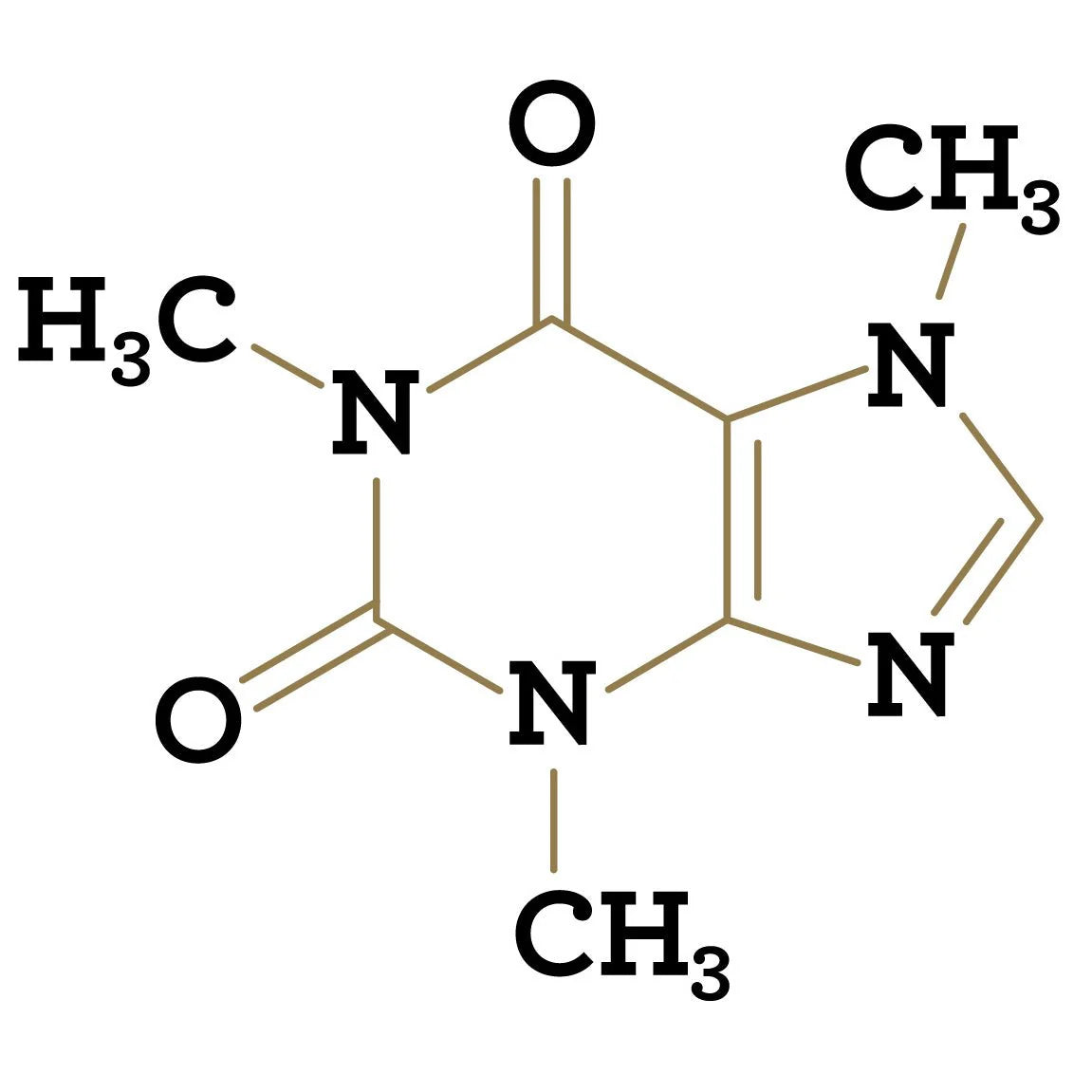Your Cart is Empty
Author: Logan Hayes
Abstract:
- All true tea (Camellia sinensis) contains caffeine.
- Tisanes (herbal infusions) do not, with some exceptions (e.g., yaupon, yerba mate, cascara).
- Oxidation level (white, green, oolong, black) does not determine caffeine content.
- Some processing methods (e.g., roasting) can lower caffeine content.
- Tea weight, water temperature, and steep time affect caffeine extraction.
- A standard cup of tea (~3g steeped for 3 minutes in 350ml of water) contains ~60mg caffeine.
The Gist
"Tea comforts the spirit, banishes passivity, lightens the body, and adds sparkle to the eyes."
- Shen Nong, Medicinal Herbs
Probably what Shen was experiencing was caffeine—alongside other bioactive compounds in ancient tea trees. No speculation here, just facts:
Tea (an extraction of Camellia sinensis) contains caffeine. Always. Unless it's been decaffeinated (via pressure cooking with carbon monoxide) or heavily roasted (e.g., houjicha), it has about half the caffeine of coffee. Caffeine content varies by steeping method, not by tea type.
Tisanes (non-tea plants like herbs and flowers) generally don’t contain caffeine. Exceptions exist: yaupon, yerba mate, guayusa, guarana, cascara. But most herbal infusions won’t give you a caffeine boost.
This is why we push back against the term "herbal tea"—it’s inaccurate. If there’s no tea in the cup, it’s a tisane. Language matters, and understanding what’s in your cup has health implications.
Pharmacology

Tea plants produce caffeine as a defense mechanism—it's a natural insecticide.
Caffeine, also called "theine" in tea, is a methylxanthine alkaloid (C8H10N4O2). It’s a central nervous system stimulant. But unlike coffee, tea also contains L-theanine, which counteracts caffeine’s vasoconstriction effects, delivering calm focus rather than a jolt.
(Fun fact: Caffeine is technically toxic to humans. Fortunately, our livers metabolize it efficiently. Tea’s mild stimulant effect is a biological loophole.)
Myths
- "Green tea has more caffeine than black tea" False.
- "White tea has the most caffeine." Also false.
- "Tea caffeine is different from coffee caffeine." Chemically identical, but tea’s cofactors (like l-theanine) change its effect.
- "Old tree tea (gushu) has more caffeine." Maybe. Some believe older trees produce tea with stronger effects (“tea drunk” sensation), but no hard evidence supports this.
In Sum
- All tea contains caffeine.
- Most tisanes don't.
- Tea type doesn't dictate caffeine content.
- Roasting and decaffeination can reduce caffeine.
- How you steep matters more than what you steep.
Looking for a stronger caffeine kick? Choose well-processed tea from healthy plants, and steep strategically. Ask your vendor—if they know their craft, they’ll have answers.
(Questions? Our inbox is always open, and your inquiries are always warmly received.)
Sources
Caffeine Content of Brewed Teas, Journal of Analytical Toxicology
https://doi.org/10.1093/jat/32.8.702
The combined effects of L-theanine and caffeine on cognitive performance and mood
https://pubmed.ncbi.nlm.nih.gov/18681988/
Analysis of Caffeine


